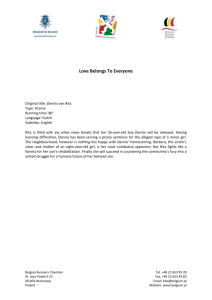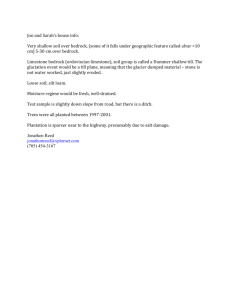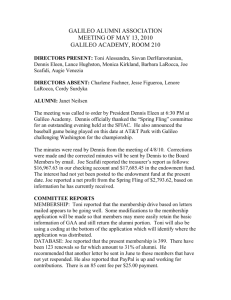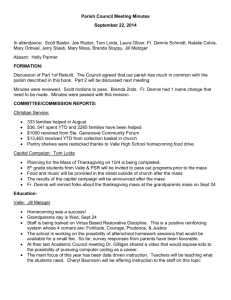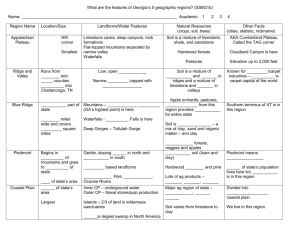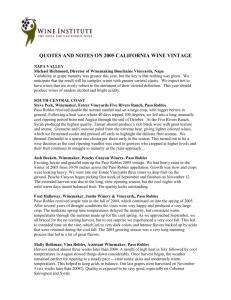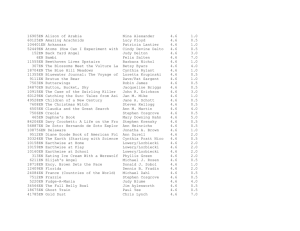honeysuckle visitor comment - Coonawarra Vignerons Association
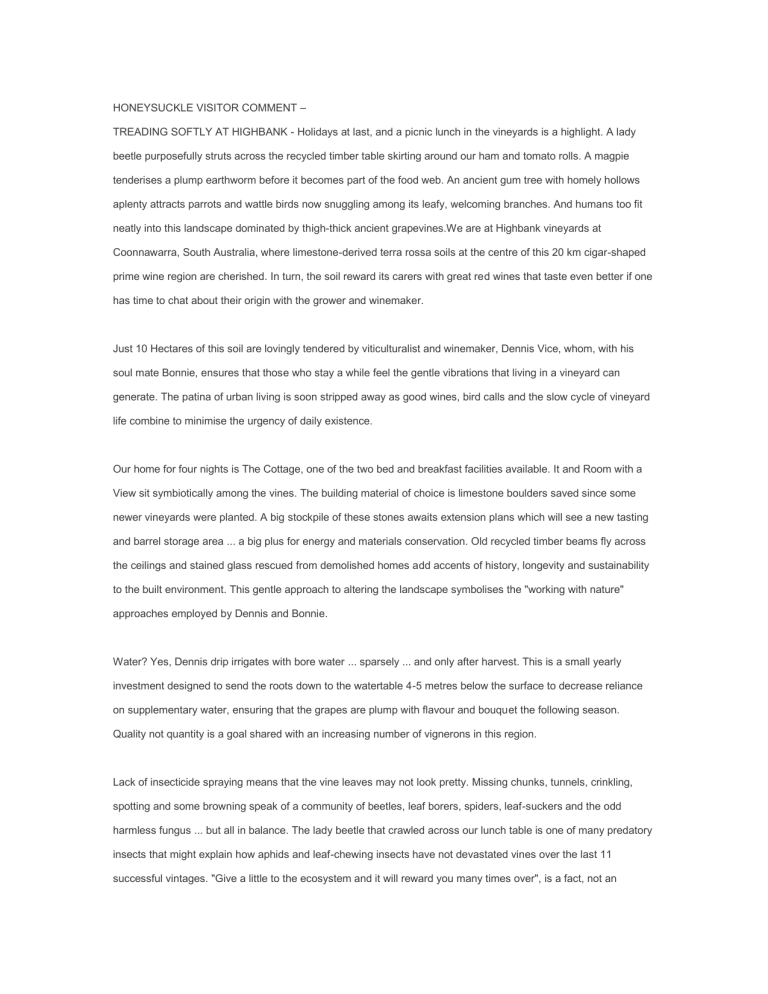
HONEYSUCKLE VISITOR COMMENT
–
TREADING SOFTLY AT HIGHBANK - Holidays at last, and a picnic lunch in the vineyards is a highlight. A lady beetle purposefully struts across the recycled timber table skirting around our ham and tomato rolls. A magpie tenderises a plump earthworm before it becomes part of the food web. An ancient gum tree with homely hollows aplenty attracts parrots and wattle birds now snuggling among its leafy, welcoming branches. And humans too fit neatly into this landscape dominated by thigh-thick ancient grapevines.We are at Highbank vineyards at
Coonnawarra, South Australia, where limestone-derived terra rossa soils at the centre of this 20 km cigar-shaped prime wine region are cherished. In turn, the soil reward its carers with great red wines that taste even better if one has time to chat about their origin with the grower and winemaker.
Just 10 Hectares of this soil are lovingly tendered by viticulturalist and winemaker, Dennis Vice, whom, with his soul mate Bonnie, ensures that those who stay a while feel the gentle vibrations that living in a vineyard can generate. The patina of urban living is soon stripped away as good wines, bird calls and the slow cycle of vineyard life combine to minimise the urgency of daily existence.
Our home for four nights is The Cottage, one of the two bed and breakfast facilities available. It and Room with a
View sit symbiotically among the vines. The building material of choice is limestone boulders saved since some newer vineyards were planted. A big stockpile of these stones awaits extension plans which will see a new tasting and barrel storage area ... a big plus for energy and materials conservation. Old recycled timber beams fly across the ceilings and stained glass rescued from demolished homes add accents of history, longevity and sustainability to the built environment. This gentle approach to altering the landscape symbolises the "working with nature" approaches employed by Dennis and Bonnie.
Water? Yes, Dennis drip irrigates with bore water ... sparsely ... and only after harvest. This is a small yearly investment designed to send the roots down to the watertable 4-5 metres below the surface to decrease reliance on supplementary water, ensuring that the grapes are plump with flavour and bouquet the following season.
Quality not quantity is a goal shared with an increasing number of vignerons in this region.
Lack of insecticide spraying means that the vine leaves may not look pretty. Missing chunks, tunnels, crinkling, spotting and some browning speak of a community of beetles, leaf borers, spiders, leaf-suckers and the odd harmless fungus ... but all in balance. The lady beetle that crawled across our lunch table is one of many predatory insects that might explain how aphids and leaf-chewing insects have not devastated vines over the last 11 successful vintages. "Give a little to the ecosystem and it will reward you many times over", is a fact, not an
opinion, at Highbank.
Weeds always have a negative connotation as a plant growing out of place. They compete for water and minerals.
But here, they are kept in check by the careful application of cover crops of organically certified rye and fescue between the rows, assisted by once in a decade application of non acid-based organic fertiliser ... one that will fit in with the natural balance that is here.
The weathered limestone is bright red due to a natural abundance of minerals and organic matter captured during the formation of limestone in the freshwater lakes that abounded here in recent geological time. Hence the need for minimal fertilisation Legumes are avoided to keep the nitrogen content of the soil down and to minimise the leafiness of the vines. The odd weeds that do appear are not treated as the enemy, but as a niche for "friendly" predators ... supplying them with habitat to reduce the need for insecticides. Cover crops and a few odd weeds also help prevent soil erosion. Don't mess with Mother Nature. Dennis and Bonnie don't - It shows.
Dennis, as a winemaker and viticultural educator wanted some more objective evidence that his soil and vineyard management techniques were working. Several student projects were devised to investigate soil ecology here and in other vineyards. It came as a welcome surprise that worm species and other small animals Dennis had never seen previously in intensely cultivated land were here in abundance Highbank is a place of viable, ecological complexity not often seen in other farmed lands. With such biological diversity and abundance, Highbank is demonstrating multiple interactions between soil animals, microflora and the vines themselves ... ancient allegiances that predate the separation of European and Australian land masses in our remote geological past.
Such consequences of the "minimalist approaches" adopted at Highbank must be a source of enormous pride for people who regard themselves as caretakers rather than owners of this bountiful resource.
We sipped on some of the last of Highbank's 2001 Cabernet, Cabernet Franc, Merlot blend as Dennis takes a call from Singapore seeking out a few of the last precious boxes of the wine we are enjoying. Conservative, but ecologically-based farming practices have not harmed the grapes or the business. Dennis and Bonnie think big, but act small. Quality wine production that starts with gentle massaging of the soil conserves the natural predators by being artificial chemical free, and maintaining natural habitats and processes are just some of the techniques employed to sustain this vineyard. Hand harvesting and pruning used at Highbank not only conserve fossil fuels but ensure that the low yield of 2-2.5 tons per acre produces high quality fruit that translates into red wines that command high praise and a price that indicates this is no mere quaffing beverage. In reviews it is rare that the wines don't score with the top in the world. Highbank has included a link to there web site section About the Wines
on highbank.com.au.
Above all, Dennis and Bonnie intuitively understand cycles in nature. They adopt many organic principles to ensure that agricultural productivity is not achieved at the risk of compromising these natural webs of interaction on which the long-term viability of a commercial enterprise depends. Highbank is a clear trendsetter in "minimal impact farming".
Dennis is still a teacher in the way that he provides a model that others can emulate. Australian ecosystems and agriculture will be the winners when we can rediscover the wisdom of the elders who know to tread softly on the earth.
Gary Schoer ENVIROSENSE
